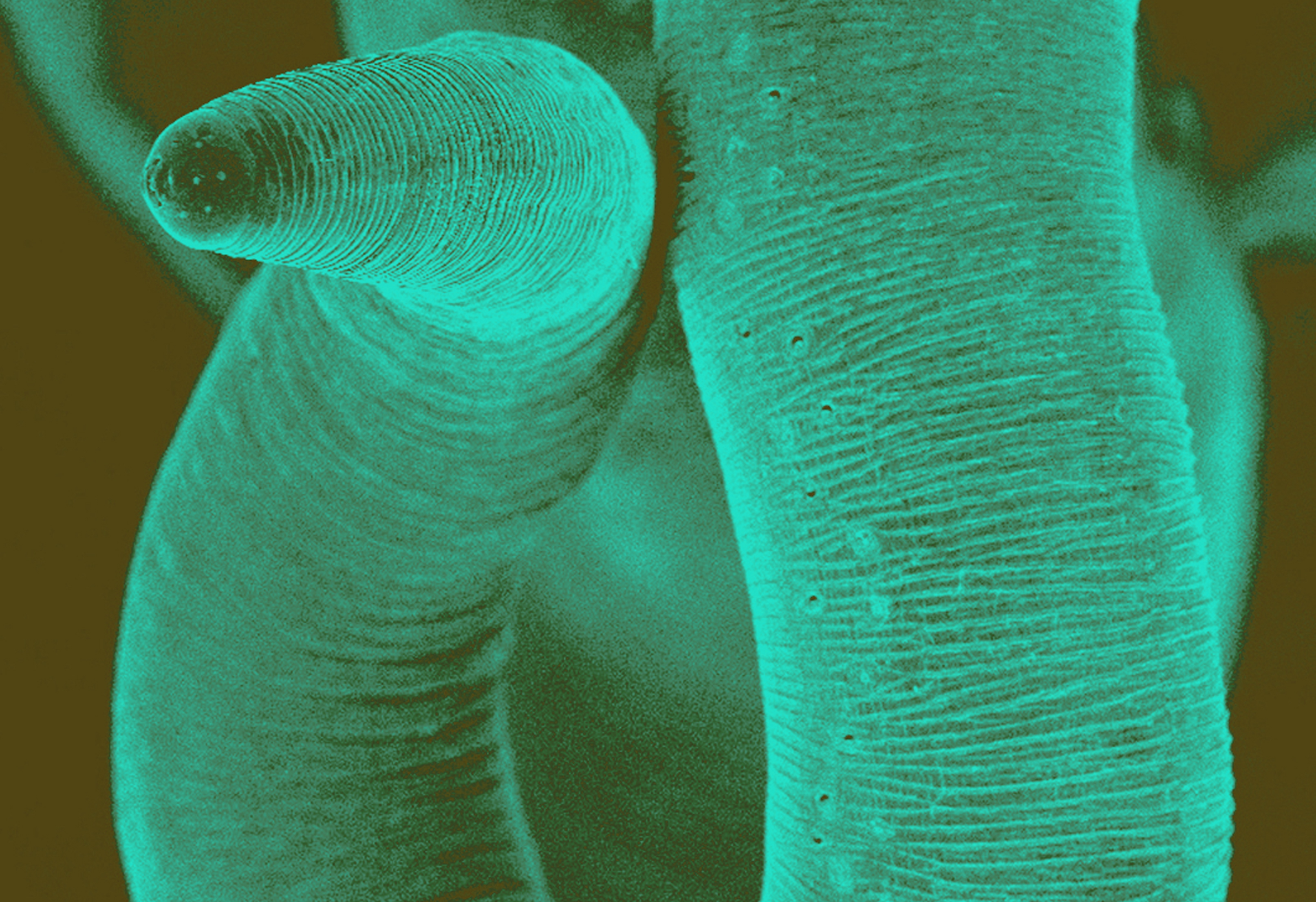
UK pupils and scientists explore parasite problem
EMBL-EBI teams up with collaborators and schools in large-scale genome decoding project to produce first fully-annotated sequence of the human whipworm

The Institute for Research in Schools (IRIS) and the Wellcome Genome Campus has launched the first large-scale schools genome decoding project. In this exciting collaboration, students from over 60 schools in the UK will work with scientists at the European Bioinformatics Institute (EMBL-EBI) and the Wellcome Trust Sanger Institute to identify all the genes in the DNA of a global parasite: the human whipworm. The information from this project will help researchers understand the biology of the parasite. It will also aid the development of vaccines or treatments.
The human whipworm – Trichuris trichiura – is a parasitic worm that infects approximately 500 million people globally. It is particularly common in children in Asia, Africa and South America. It causes the neglected tropical disease Trichuriasis, which leads to diarrhoea, malnourishment and developmental problems. This disease has a chronic impact on the communities affected, but there is no current vaccine against whipworm. Existing treatments don’t work very well and are too expensive for many areas.
In a year-long research project, pupils will work alongside scientists to produce the first fully annotated whipworm genome sequence. A high-quality DNA sequence for the human whipworm has recently been produced; however, an estimated 15,000 whipworm genes still need to be identified.
Large scale genome annotation
EMBL-EBI’s WormBase team will contribute their genome-annotation expertise and host the infrastructure. This involves preparing training materials and delivering workshops for teachers and pupils. Participants will learn how to find, identify and label genes, using their own computers. EMBL-EBI experts will also provide live support for the students as they do the curation.
Once finalised, the annotation data will be hosted and shared with the wider scientific community through the WormBase Parasite website.
The pupils will learn about genomics and science in general. We really hope this will inspire them to pursue a scientific career
“This project will give students an idea of what it’s like to be a part of a big, scientific project,” explains Kevin Howe, Wormbase Coordinator at EMBL-EBI. “The pupils will learn about genomics and science in general. We really hope this will inspire them to pursue a scientific career. They will also be contributing directly to science by working on producing a high-quality, well-annotated whipworm genome. We would not have had the resources to annotate to that degree of detail ourselves.”
A globally important project
Prof Becky Parker, the Director of the Institute for Research in Schools, a charity that supports students and teachers doing research in schools, said: “We are really excited to be launching this ground-breaking project, and have been delighted by how many schools have joined. It is a fabulous opportunity for school students to carry out real research, working directly with scientists on a globally important project. This is the first time ever that students have been able to help curate an entire genome, and they are hugely enthusiastic to get started.”
Dr Matt Berriman, from the Wellcome Trust Sanger Institute, said: “There are millions of people infected with whipworms worldwide, and this effects whole societies due to a general level of ill health. The genome is the starting point for understanding any organism – it is the instruction manual. The students’ work producing a manually curated whipworm genome could reveal vulnerabilities in the parasite that might be exploitable as drug or vaccine targets. In the long term, this project could help towards reducing the number of children infected with whipworms in less developed parts of the world and help get them back to school.”
About WormBase
WormBase is an international consortium of biologists and computer scientists. It provides accurate, current, accessible information concerning the genetics, genomics and biology of C. elegans and related roundworms.
Founded in 2000, the WormBase Consortium is led by Paul Sternberg of CalTech, Paul Kersey of EMBL-EBI, Matt Berriman of the Wellcome Trust Sanger Institute, and Lincoln Stein of the Ontario Institute for Cancer Research.
This post was originally published on EMBL-EBI News.


